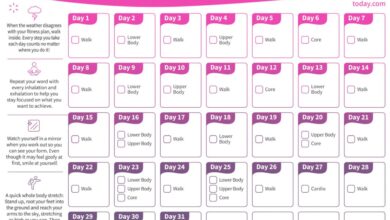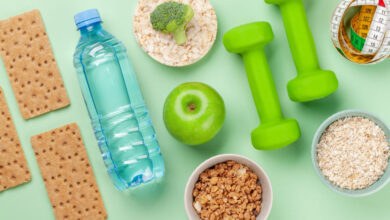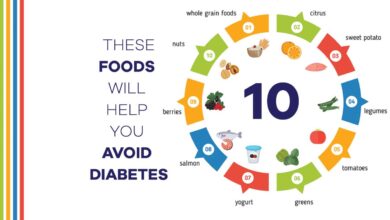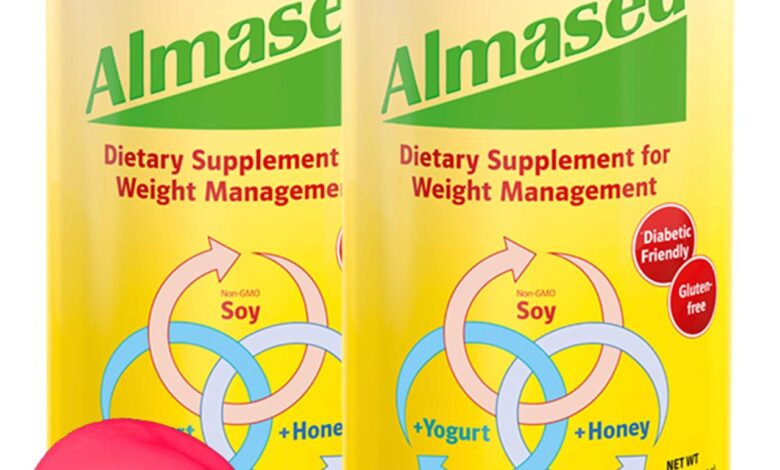
Meal Replacement Shakes for Weight Loss: The Truth
The truth about meal replacement shakes for weight loss is often shrouded in hype and misinformation. While these convenient, pre-packaged drinks can certainly help with weight management, they’re not a magical solution. Like any diet tool, they require careful consideration and a balanced approach.
Let’s dive into the science behind meal replacement shakes, exploring their potential benefits and drawbacks, and how to use them effectively for sustainable weight loss.
What are Meal Replacement Shakes?
Meal replacement shakes are beverages designed to substitute a full meal, providing a balanced mix of macronutrients like protein, carbohydrates, and fats, along with essential vitamins and minerals. They are often marketed for weight loss, but their benefits extend to convenience, dietary management, and providing a controlled calorie intake.
Distinguishing Meal Replacement Shakes from Protein Shakes
Meal replacement shakes and protein shakes are often confused, but they serve different purposes. Protein shakes primarily focus on providing protein, typically used for muscle building and recovery after exercise. They are generally lower in calories and carbohydrates compared to meal replacement shakes.
Meal replacement shakes, on the other hand, aim to replace a complete meal, offering a more balanced nutritional profile with a broader range of macronutrients and micronutrients.
Types of Meal Replacement Shakes
There are numerous types of meal replacement shakes available in the market, each catering to specific needs and dietary preferences. Some common types include:
- Weight-Loss Shakes:These shakes are formulated to be low in calories and high in protein, designed to help individuals manage their weight by controlling their calorie intake. They often contain ingredients like whey protein, soy protein, or plant-based protein sources.
- High-Protein Shakes:These shakes focus on providing a high dose of protein, primarily for athletes and individuals seeking to build muscle mass. They typically contain whey protein isolate, casein protein, or other high-protein sources.
- Low-Carb Shakes:Designed for individuals following a low-carbohydrate diet, these shakes minimize carbohydrate content while maintaining adequate protein and fat levels. They often utilize protein sources like whey protein, casein protein, or plant-based protein sources, along with healthy fats from sources like nuts, seeds, or avocado.
Let’s be real, meal replacement shakes aren’t a magic weight loss bullet. They can be helpful for short-term weight management, but sustainable weight loss comes from making healthy choices consistently. That’s where the concept of a “build healthier holiday plate” comes in – check out this guide for some great tips.
By focusing on balanced meals and mindful eating year-round, you’ll be better equipped to navigate holiday temptations and maintain a healthy weight in the long run, which is ultimately more important than relying on quick fixes like meal replacement shakes.
- Vegan Shakes:Catered to individuals following a vegan diet, these shakes are made with plant-based protein sources like soy protein, pea protein, brown rice protein, or hemp protein. They also include other vegan-friendly ingredients like fruits, vegetables, and plant-based fats.
The Science Behind Meal Replacement Shakes for Weight Loss
The effectiveness of meal replacement shakes for weight loss hinges on the fundamental principles of calorie intake and expenditure. Understanding the role of calories and macronutrients is crucial to grasp how these shakes can contribute to weight management.
Calorie Deficit and Weight Loss
Weight loss is fundamentally about creating a calorie deficit, meaning consuming fewer calories than your body burns. When you consume fewer calories than your body needs, it starts utilizing stored fat for energy, leading to weight loss. Meal replacement shakes can be a valuable tool for creating a calorie deficit.
They typically contain fewer calories than a regular meal, and by replacing one or two meals with shakes, you can reduce your overall daily calorie intake.
Macronutrient Composition of Meal Replacement Shakes
Meal replacement shakes are formulated to provide a balanced mix of macronutrientsprotein, carbohydrates, and fats. While the specific composition can vary, they generally prioritize protein to support muscle mass and satiety. This balanced approach ensures that you receive the essential nutrients your body needs while reducing overall calorie intake.
Research Findings on the Effectiveness of Meal Replacement Shakes
Numerous studies have investigated the efficacy of meal replacement shakes for weight management. Here are some key findings:
- A review of 16 studies published in the journal “Obesity Reviews” found that meal replacement shakes were associated with significant weight loss compared to traditional diets.
- A study published in the “American Journal of Clinical Nutrition” found that participants who replaced two meals per day with shakes lost more weight than those who followed a traditional diet.
- Research suggests that meal replacement shakes can also be beneficial for improving blood sugar control and reducing cholesterol levels.
It’s important to note that the effectiveness of meal replacement shakes can vary depending on individual factors such as starting weight, adherence to the program, and overall lifestyle changes.
Benefits of Using Meal Replacement Shakes for Weight Loss
Meal replacement shakes offer several benefits for those looking to lose weight, making them a popular choice for many individuals. These benefits go beyond just providing a convenient way to manage calorie intake, encompassing aspects like hunger control and potential advantages for managing specific health conditions.
Convenience
Meal replacement shakes provide a convenient and time-saving option for those with busy schedules. They can be easily prepared and consumed on the go, eliminating the need for time-consuming meal preparation. This convenience can be particularly helpful for individuals who find it difficult to stick to a regular meal plan due to work, travel, or other commitments.
Hunger Control and Cravings
Meal replacement shakes can effectively manage hunger and cravings, contributing to weight loss. They often contain high-quality protein, fiber, and other nutrients that promote satiety and reduce the urge to snack between meals. This can be particularly beneficial for individuals who experience frequent hunger pangs or struggle with emotional eating.
Potential Benefits for Managing Specific Health Conditions
Meal replacement shakes can also offer potential benefits for individuals managing certain health conditions. For instance, some shakes are formulated to be low in sodium or sugar, which can be beneficial for individuals with hypertension or diabetes. Additionally, shakes can be a valuable tool for managing weight in individuals with conditions like obesity or polycystic ovary syndrome (PCOS).
Potential Drawbacks of Meal Replacement Shakes
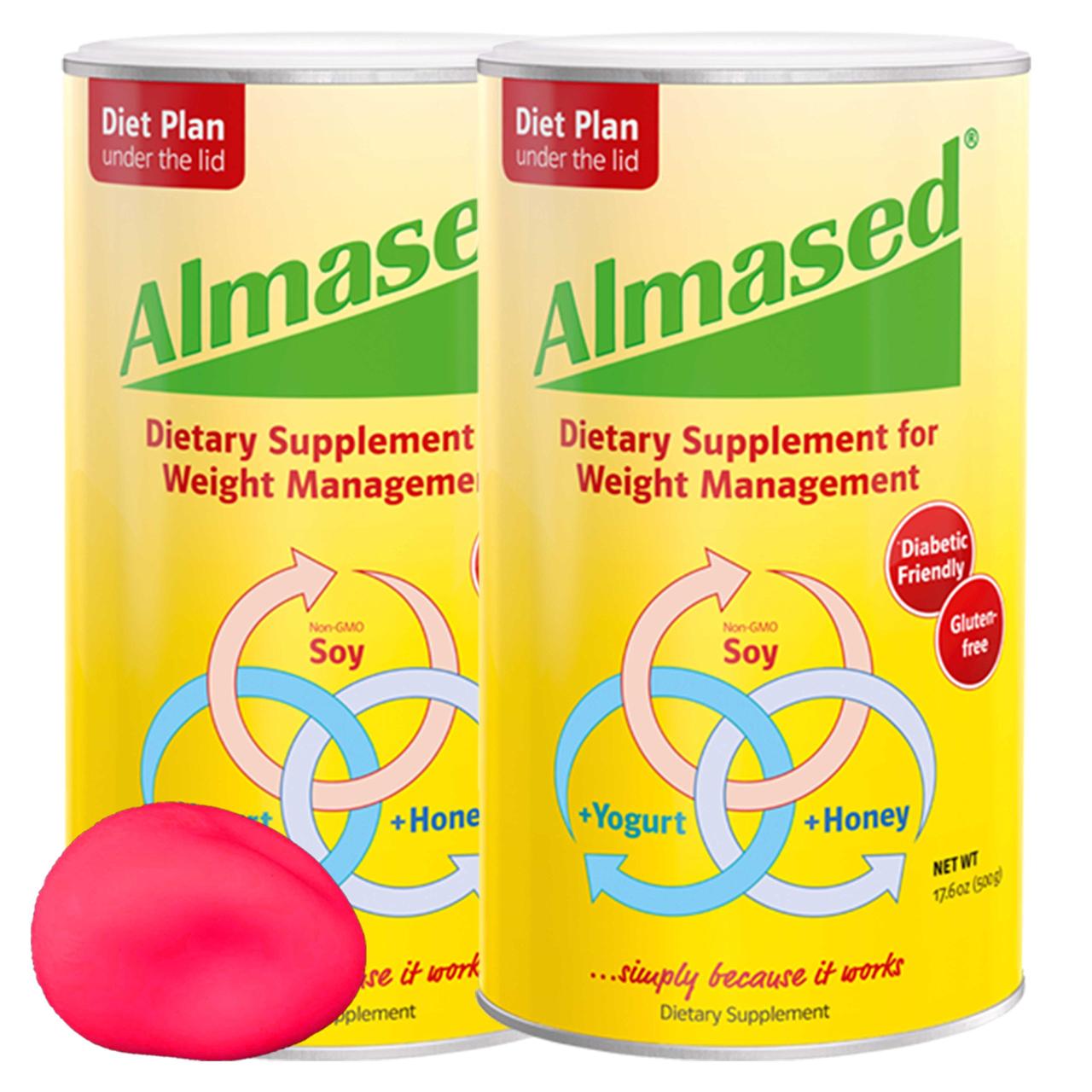
While meal replacement shakes offer a convenient and potentially effective way to manage weight, it’s crucial to acknowledge their potential drawbacks. Relying solely on these shakes for extended periods can pose certain risks and may not be suitable for everyone.
Potential Risks of Long-Term Reliance on Meal Replacement Shakes
Long-term reliance on meal replacement shakes can lead to several potential risks, including:
- Nutritional Deficiencies:Meal replacement shakes, while often fortified with essential vitamins and minerals, may not provide the same breadth of nutrients as a balanced diet. Long-term consumption could lead to deficiencies in fiber, certain vitamins and minerals, and essential fatty acids.
- Gastrointestinal Issues:Some individuals may experience digestive discomfort, such as bloating, gas, or diarrhea, when consuming meal replacement shakes regularly. This is often due to the high protein content or the presence of artificial sweeteners or other ingredients that can irritate the digestive system.
- Reduced Appetite Regulation:Frequent consumption of meal replacement shakes may interfere with the body’s natural hunger and satiety signals. This can lead to difficulties in regulating appetite and potentially contribute to overeating in the long run.
- Social Isolation:Relying heavily on meal replacement shakes can lead to social isolation as mealtimes become less enjoyable and less of a shared experience.
- Potential for Eating Disorders:In some cases, excessive reliance on meal replacement shakes can contribute to the development of eating disorders, particularly in individuals with a history of disordered eating.
Nutritional Deficiencies Associated with Long-Term Meal Replacement Shake Consumption
Prolonged consumption of meal replacement shakes can lead to various nutritional deficiencies, particularly in individuals who rely on them as their primary source of nutrition. These deficiencies can negatively impact overall health and well-being.
- Fiber Deficiency:Most meal replacement shakes are low in fiber, which is crucial for digestive health, blood sugar regulation, and satiety. This can lead to constipation, irregular bowel movements, and increased risk of heart disease.
- Vitamin and Mineral Deficiencies:While fortified with essential vitamins and minerals, meal replacement shakes may not provide the same range and bioavailability of nutrients as a balanced diet. This can lead to deficiencies in vitamins such as A, D, E, and K, as well as minerals like calcium, iron, and zinc.
- Essential Fatty Acid Deficiency:Meal replacement shakes often lack adequate amounts of essential fatty acids, such as omega-3 and omega-6 fatty acids, which are crucial for brain function, heart health, and inflammation regulation.
Importance of Consulting a Healthcare Professional, The truth about meal replacement shakes for weight loss
Before incorporating meal replacement shakes into your weight loss strategy, it’s essential to consult with a healthcare professional, such as a registered dietitian or physician. They can assess your individual needs, dietary requirements, and medical history to determine if meal replacement shakes are appropriate for you.
Meal replacement shakes can be a useful tool for weight loss, but they’re not a magic bullet. It’s crucial to understand that sustainable weight loss comes from a holistic approach, including diet and exercise. If you’re considering intermittent fasting alongside meal replacement shakes, be sure to avoid common mistakes like overeating during your feeding window, 6 intermittent fasting mistakes to avoid.
Ultimately, the success of meal replacement shakes depends on individual needs and how they fit into a balanced lifestyle.
They can also help you choose the right type of shake, monitor your progress, and address any potential nutritional deficiencies.
Choosing the Right Meal Replacement Shake
Navigating the world of meal replacement shakes can be overwhelming, given the sheer variety of options available. Choosing the right shake for your individual needs and goals is crucial for maximizing its effectiveness and ensuring a safe and enjoyable experience.
Factors to Consider When Choosing a Meal Replacement Shake
Several key factors should be considered when choosing a meal replacement shake. These factors influence the shake’s effectiveness, safety, and overall suitability for your needs.
- Nutritional Content:Look for shakes that provide a balanced mix of macronutrients (protein, carbohydrates, and fats) and essential vitamins and minerals. Aim for a shake with at least 20 grams of protein per serving, as protein is crucial for maintaining muscle mass and satiety.
- Calorie Content:The calorie content of the shake should align with your overall calorie needs for weight loss. If you are aiming for a significant calorie deficit, choose a shake with lower calories. Conversely, if you are looking for a shake to supplement your diet and provide additional calories, a higher-calorie option may be more suitable.
- Ingredients:Opt for shakes with minimal added sugars, artificial sweeteners, and unhealthy fats. Ideally, the shake should be made with whole food ingredients like fruits, vegetables, and protein sources. Pay attention to the sugar content, as high sugar levels can hinder weight loss efforts.
- Taste and Texture:Choose a shake that you find enjoyable and palatable. There is a wide range of flavors and textures available, so find one that you are likely to stick with.
- Cost and Convenience:Consider your budget and lifestyle when choosing a shake. Some shakes are more expensive than others, and some require blending or preparation, while others are ready-to-drink.
- Health Conditions:If you have any dietary restrictions or health conditions, ensure the shake you choose is compatible with your needs. Some shakes are formulated for specific dietary requirements, such as gluten-free or vegan options.
Comparing and Contrasting Meal Replacement Shake Brands and Types
A wide array of meal replacement shakes are available, each with its unique blend of ingredients and nutritional profile. Comparing and contrasting different brands and types can help you identify the best fit for your needs.
The truth about meal replacement shakes for weight loss is that they can be helpful, but they’re not a magic bullet. You still need to make healthy choices and focus on a balanced diet. If you’re looking for quick and easy meal ideas, check out diets and recipes for 35 minute dinners , which can help you create delicious and nutritious meals in a hurry.
Remember, sustainable weight loss is about long-term lifestyle changes, not quick fixes.
| Brand | Type | Pros | Cons |
|---|---|---|---|
| Brand A | High-protein, low-calorie | High protein content for muscle maintenance, low calorie count for weight loss | May be too low in calories for some individuals, limited flavor options |
| Brand B | Whole food-based | Made with real fruits, vegetables, and protein sources, provides a good source of vitamins and minerals | May be more expensive than other options, requires blending or preparation |
| Brand C | Ready-to-drink | Convenient and easy to use, available in a variety of flavors | May contain added sugars and artificial ingredients, can be expensive |
| Brand D | Vegan | Plant-based, suitable for individuals following a vegan diet | May be lower in protein than other options, limited flavor variety |
Long-Term Sustainability and Meal Replacement Shakes: The Truth About Meal Replacement Shakes For Weight Loss
Meal replacement shakes can be a valuable tool for weight loss, but they are not a long-term solution. The goal should be to transition to a balanced diet and maintain a healthy lifestyle for sustainable weight management.
Transitioning to a Balanced Diet
It is crucial to gradually incorporate regular meals back into your diet while decreasing your reliance on meal replacement shakes. This transition helps your body adjust to eating solid foods again and prevents nutritional deficiencies.
- Start by replacing one meal replacement shake per day with a balanced meal. This could be breakfast, lunch, or dinner.
- Gradually increase the number of meals you eat, while decreasing the number of shakes you consume. Aim to have at least one or two balanced meals per day, and eventually, you can reduce the shakes to just a snack or occasional supplement.
- Focus on incorporating nutrient-rich foods into your meals, including fruits, vegetables, lean protein, and whole grains. This ensures you are getting all the essential vitamins, minerals, and fiber your body needs.
Final Summary
Ultimately, the decision to use meal replacement shakes for weight loss is a personal one. If you’re considering incorporating them into your routine, remember to prioritize a balanced diet, regular exercise, and consult with a healthcare professional to ensure they’re right for you.
While meal replacement shakes can be a helpful tool, they’re just one piece of the puzzle when it comes to achieving your weight loss goals.

